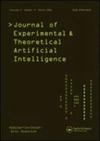Preserving sensitive data with deep learning assisted sanitisation process
IF 1.7
4区 计算机科学
Q3 COMPUTER SCIENCE, ARTIFICIAL INTELLIGENCE
Journal of Experimental & Theoretical Artificial Intelligence
Pub Date : 2022-12-04
DOI:10.1080/0952813X.2022.2149861
引用次数: 0
Abstract
ABSTRACT This work introduces a novel privacy preservation scheme. In large databases, the data sanitisation process preserves the stored sensitive data safely from unauthorised access and users by hiding it. Moreover, the statistical features are extracted. Further, the normalised data and features are processed under the data sanitisation process. For the sanitisation process, the optimal key is produced by utilising the Deep Belief Network (DBN) with Chaotic Map-adopted Poor and Rich Optimisation (CMPRO) model. It is the modified version of the classical PRO algorithm. As a novelty, chaotic map and cycle crossover operation is included in the CMPRO algorithm. Privacy, modification degree, data preservation ratio, and hiding failure are considered as the objectives for the key generation process. Then, the data restoration process restores or recovers the sanitised data, and it is the reverse process. Then, the outcomes of the adopted scheme are analysed over the traditional systems based on certain measures. Especially, the sanitisation effectiveness of the proposed approach for data 1 in test case 2 and it is 54.56%, 51.82%, 47.94%, 49.59%, 18.17%, 43.32%, 47.03%, 47.03%, 55.79%, 21.84%, 47.33%, and 32.13% better than the existing CNN+CMPRO, RNN+CMPRO, LSTM+CMPRO, BiLSTM+CMPRO, DBN+PRO, DBN+SSA, DBN+SMO, DBN+LA, DBN+SSO, DBN+J-SSO, DBN+BS-WOA, and DBN+R-GDA schemes.通过深度学习辅助清理过程保存敏感数据
本文介绍了一种新的隐私保护方案。在大型数据库中,数据清理过程通过隐藏存储的敏感数据来保护存储的敏感数据免受未经授权的访问和用户的侵害。此外,还提取了统计特征。此外,在数据净化过程中对规范化的数据和特征进行处理。在消毒过程中,利用深度信念网络(DBN)和混沌映射的贫富优化(CMPRO)模型产生最优密钥。它是经典PRO算法的改进版。该算法新颖地引入了混沌映射和循环交叉操作。密钥生成过程以保密性、修改程度、数据保存率和隐藏失败为目标。然后,数据恢复过程恢复或恢复经过安全处理的数据,这是一个相反的过程。在此基础上,通过一定的措施对比分析了所采用方案的效果。特别是,在测试用例2中,该方法对数据1的净化效果比现有的CNN+CMPRO、RNN+CMPRO、LSTM+CMPRO、BiLSTM+CMPRO、DBN+PRO、DBN+SSA、DBN+SMO、DBN+LA、DBN+SSO、DBN+J-SSO、DBN+BS-WOA和DBN+R-GDA方案分别提高了54.56%、51.82%、47.94%、49.59%、18.17%、43.32%、47.03%、47.03%、55.79%、21.84%、47.33%和32.13%。
本文章由计算机程序翻译,如有差异,请以英文原文为准。
求助全文
约1分钟内获得全文
求助全文
来源期刊
CiteScore
6.10
自引率
4.50%
发文量
89
审稿时长
>12 weeks
期刊介绍:
Journal of Experimental & Theoretical Artificial Intelligence (JETAI) is a world leading journal dedicated to publishing high quality, rigorously reviewed, original papers in artificial intelligence (AI) research.
The journal features work in all subfields of AI research and accepts both theoretical and applied research. Topics covered include, but are not limited to, the following:
• cognitive science
• games
• learning
• knowledge representation
• memory and neural system modelling
• perception
• problem-solving

 求助内容:
求助内容: 应助结果提醒方式:
应助结果提醒方式:


